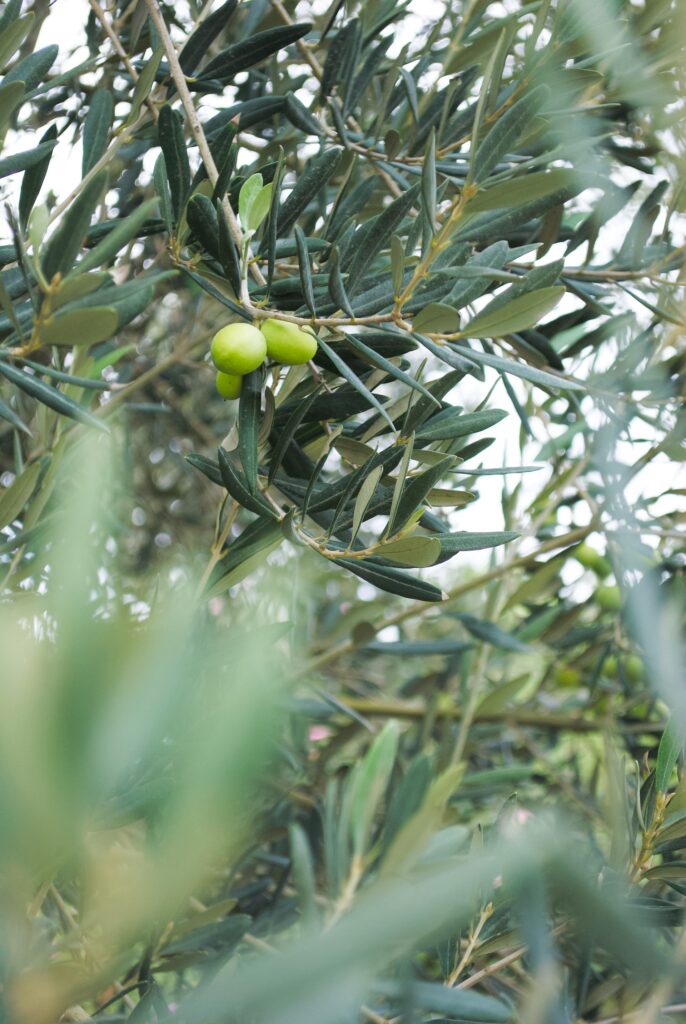Olives, whether in a salad or a martini, are oval-shaped fruits known for their distinct flavor and high nutritional value. If you’ve ever wondered if you could share olives with your best friend, the answer is yes—they’re not toxic to dogs and can be shared in moderation. Of course, there are some risks to feeding olives to your canine companion, as there are many “human” foods. Here’s what you need to know if you want to share olives with your dog.
Table of Contents
Related post:
- Can dogs eat cucumbers? Are cucumber seeds safe for dogs?
- Can dogs eat okra? Is okra safe for dogs?

Can dogs eat olives?
Though olives are high in vitamins (A, E, and K), minerals, and antioxidants (as well as healthy fats and proteins) that are beneficial to human health, dogs who are fed a complete and nutritionally balanced diet do not require these extra nutrients. Olives are thought to help lower cholesterol and blood pressure, as well as prevent heart disease and certain cancers in humans. They are also thought to aid digestion, calm allergic reactions, and reduce inflammation.
While your pet would have to consume larger amounts of olives to reap these benefits (which aren’t always safe), that doesn’t mean olives can’t be an occasional healthy snack for your dog. The essential nutrients found in olives are thought to have the potential to help boost your dog’s immune system and reduce inflammation, improve their vision and bone health, and even help prevent heart disease and various cancers.
Olives are also associated with improved brain function, so there’s a case to be made for feeding olives to Rover to help improve his cognitive health. And, while they are high in fat, it is a monounsaturated fatty acid that is good for dogs and humans alike and has the potential to lower cholesterol while promoting healthy skin and coat for your pup.
Selecting Olives for Dogs
Olives are grown worldwide and come in over 2,000 different varieties. They are an essential component of the Mediterranean diet. If you can’t decide between black and green olives, pet owners should know that both types are safe for their pets.
However, you should only give your dog plain, unsalted olives as a snack, and only in moderation. Feeding your dog too many olives will not only add unnecessary calories to their diet, putting them at risk for weight-related issues, but olives may also cause GI issues in some dogs, such as stomach pain, vomiting, or (most likely) diarrhea. Furthermore, olives are frequently prepared with garlic or oil and other seasonings that are toxic to dogs.
It should go without saying that you should never give your dog an olive that has been floating around in an alcoholic beverage, as alcohol is toxic to dogs. Stuffed olives are also off-limits because they frequently contain anchovies, blue cheese, or feta cheese, all of which are toxic to pets. When possible, choose organic olives—they may be more expensive, but if you intend to share them with Fido, they’re the healthiest option.
Can dogs eat olives safely?
Although olives themselves are not toxic to dogs, their pits are. The pits found inside olives, like many other pitted fruits, can cause choking or other obstructions in dogs, as they can block airways or become lodged inside their intestinal tract. Furthermore, because olive pits are hard, biting on them can result in cracked teeth and other doggy dental issues.
In general, when feeding your four-legged friend foods that aren’t specifically prepared for canines, moderation is key—a few olives (without pits) will suffice for most dogs, as plain, pitted olives rarely cause health problems in canines. However, canned or pickled olives frequently contain high levels of sodium, which is harmful to dogs and can cause dehydration, high blood pressure, and even toxicity.
When giving your dog an olive for the first time, start with a small piece or two (with your vet’s approval first) and watch him or her for any negative reactions. If your dog steals a significant number of olives (especially if they contain pits), pet owners should contact their veterinarian for advice on what symptoms to look for.
Different types of olives
So, the short answer to the question “Can dogs eat olives?” is “Yes, but only in moderation and only plain ones.” You’ll probably notice a variety of different types of olives when you go shopping. Let’s take a closer look at each type and how safe they are for puppies.
Can dogs eat olives from the tree?
Dogs should not consume olives from the tree. The pits are extremely hazardous to dogs. Dogs may choke on them, or they may become lodged in their digestive tract. They may also chip their teeth on the abrasive pits. Keep your dog away from fresh olives that have fallen from the trees.

Can dogs eat green olives with pimentos?
What about green olives? Can dogs eat olives with green pimentos? They certainly can. Green olives are safe for your dog to eat as long as they don’t have pits, aren’t soaked in salt, and don’t have any other potentially harmful spices on them.
Can dogs eat kalamata olives?
Kalamata olives have a meaty texture and are dark brown in color. They are safe to share with your dog as long as they are free of pits and unsalted.
Can dogs eat black olives and mushrooms?

Because black olives are one of the most popular types sold, it’s no surprise that people wonder, “Can dogs eat black olives?” Yes, your dog can eat pitted black olives if they are not salted and are served plain. Dogs are not poisonous or toxic to black olives. They will only harm your dog if he has an allergy to them or if you give him an olive with the pits in it.
Can dogs eat olives and mushrooms?
Champignons are one of the most nutrient-dense and widely consumed mushrooms in our diet, so it’s natural to wonder if they’re also good for him. Can champignons be poisonous to them? No, the dogs can eat them. Of course, make sure they’re champignons first because there’s another type of dangerous mushroom for them as well as us.
You should also be cautious about the number of plant foods you give him. You must never eat more than 10% of them in your diet. Because your dog is a carnivore, he requires proteins of animal origin. He will have diarrhea and digestive problems if he consumes too many mushrooms, olives, or eggplants, for example. That is, do not mistreat them.
Mushrooms, like olives, should not be served with garlic, onions, or raw. Don’t go overboard with it. Keep an eye on him the first time you give him mushrooms because he may be allergic to them. Use this advice whenever you give him human food.
Can dogs eat olives in brine?
Olives are a nutritious and healthy food, but they are high in sodium and fat. If you’re wondering if your dog can eat olives, the answer is that it depends on the type of olive. Some olives are safe to feed to dogs, while others should be avoided. Olives are classified into two types: ripe and green. Because ripe olives can cause kidney stones, they should be cooked before feeding them to your dog.
Conclusion:
Can dogs eat olives? It is safe to give your dog pitted, plain olives as a rare treat. Because of the high sodium content, keep salted or spiced olives away from your dog. The pits pose the greatest health risk, so always pit the olives before sharing them. Please consult your veterinarian if you have any concerns about how your dog will react to olives.
References:
Can dogs eat green olives , Can Dogs Eat Olives? What You Need To Know from spoiledhounds akc.org expert advice